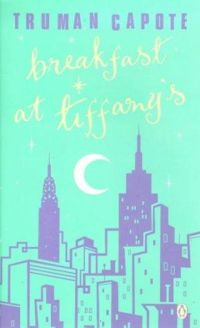Congratulations, everybody: we have now made it through protracted and sometimes painfully self-revealing discussions of something writers seldom discuss amongst themselves, learning how to become better hearers, readers, and incorporators of feedback on our manuscripts. A round of applause to all of you for being brave enough to hang in there all the way through it.
From this point through the rest of the series, we’re going to be upping the ante a little, to talk about a common feedback situation that almost invariably stresses out even the best-prepared writer new to the biz. Today, I would like to talk about how to handle authoritative revision requests, the ones that are — or at least appear — non-negotiable because they come from your agent (or prospective agent) or editor.
Before we begin, however, a word or two of caution.
I know that I’ve been harping on this for the entire series, but I would like to reiterate yet again: it is VITALLY important that you do not blow up when first asked to change your work. At least, that you do not blow up in front of the person asking for the changes — and the farther you and your manuscript move along the bumpy road to publication, the more vital this is.
While it would be merely impolite to snipe at a well-meaning critiquer of your work within the context of a writers’ group, it might well harm your reputation if you snarl back at an agent (even after you have signed with her) or an editor, NO MATTER HOW WELL JUSTIFIED YOUR RESPONSE MAY BE.
I’m quite, quite serious about this: just don’t do it. Even when confronted with the world’s biggest buffoon screaming in the world’s loudest voice, if you reply in kind, it is YOUR reputation that will be hurt, not the critiquer’s.
You need to maintain the reputation of being an easy-to-work-with writer, because it is a selling point for any future book you write. In the shorter term, being calm in the face of criticism will also bring rewards. You want your agent to send your work out eagerly and to speak of it positively, don’t you? You would like your editor to look upon your next draft with favor, don’t you?
However friendly your agent and/or editor may be, until you are a relatively well-established writer, they honestly do have power over you. So please, don’t insult them if you can possibly avoid it.
Among other plusses, if you remain pleasant when criticized, you will have the element of surprise on your side. As I hinted the other day, as a group, agents and editors tend think of us as people who will instantly begin howling with outrage if they suggest that we change so much as a semicolon of our precious work.
(This is one of the reasons, by the way, that it is easier for writers with even the most minor journalistic experience to find agents and sell their work. Journalists, the publishing world believes, have learned through hard experience how to take critique without quibbling. See why I keep urging you to try to place pieces in your local community paper as eye-catching query letter candy?)
Writers have a simply TERRIBLE reputation amongst agents and editors as crybabies, whiners, and folks who just don’t seem to understand that publishing is a BUSINESS, people. They believe, in short, that most of us so fall in love with our own words that we bleed when they are cut.
We have all met a few writers like that, of course; they pop out of the woodwork regularly at writers’ conferences. You’ve met them, haven’t you? They are the ones who tell horror stories about how an agent — get this! — had the nerve to ask for the book to be revised! Clearly, the agent was an idiot who did not understand the brilliance of the book.
They are the ones who sent out a query letter once, got rejected, and never sent another because they were too furious. Clearly, there is a conspiracy to keep great work off the shelves.
They are the ones who unstrategically begin their pitches with, “Well, I know you’re going to say that this is too radical/too conservative/too original ever to sell, but…”
They are, in a word, inflexible.
I can feel some of you squirming in your desk chairs. “All right, already, Anne,” I hear some of you muttering. “I GET it: I need to present myself as a super-reasonable person to my agent and editor, even when I’m secretly seething. I’m sure I’ll be able to control myself when the time comes.”
Not that my faith in my readers isn’t close to infinite, but…are you positive about that?
We all like to think of ourselves as reasonable people, but here’s a hypothetical that should make your toes curl: what if you, after struggling for months or years to make your work market-ready, receive an e-mail from your agent or an editorial memo suggesting something that you firmly believe, after you have thought about it long and dispassionately, that you feel will ruin the book if you complied with it?
I would love to be able to tell you that this never happens, but sometimes it does. Just as not every agent will be the best advocate of your work, not every editor will have the judgment to maximize its potential. Yours might be that editor’s first book, or the first book of its type, or the editor’s heart might not be in it.
That’s not as far-fetched as it might sound. I have — and I tremble to say this, but its true — actually seen friends’ and clients’ work CHANGED by an untalented editor from being grammatically correct to being grammatically incorrect.
No, that wasn’t a misprint. Not so long ago, I had had a rather pointed argument with an otherwise reasonable editor at a major NYC publishing house who insisted that “everyone and his Uncle George” was wrong. He thought it should be “Everyone and their Uncle George.” I referred him to Strunk and White, of course, and privately cursed his high school English teachers, but my point here is that it is not very uncommon for the writer to have a better grasp of the rules of grammar than junior editors.
I know. It’s awful, and the universe really should not work that way. Shame on it.
While you can always part company with an agent who seems to misunderstand your work, after a press buys it, you will have considerably more difficulty walking away from an editor with whom you do not click. You do not want to earn the reputation of being a contract-breaker, any more than you want to be known as someone who blows up over every suggested change.
So how can you handle this ticklish situation?
Let’s assume that you have already exercised the patience of a saint, and not immediately said, “Wow, that’s the worst idea I have every heard — did you even read the book?” when the authority figure first vouchsafed the suggested changes. Let’s further assume that you gave yourself a few days to calm down before re-reading the contested passages, and generally adhered to the guidelines we’ve been discussing for incorporating any set of feedback.
What should you do next?
Here are some practical steps to take — and do make them in order:
(1) Go through the requested changes one more time, and make sure that you understand what you are being asked to do.
Yes, even if you have already gone through each and every step in the strategies we’ve discussed so far. The ante is high enough here that it’s truly in your best interests to make absolutely certain that there’s NO chance that you’re misinterpreting the purport of the requested changes.
As we saw earlier in this series, it is awfully easy for the writer to overreact to manuscript critique, or at the very least, allow a few criticisms to burgeon mentally into a damnation of the entire work. Receiving a hostile editorial memo or other set of negative feedback from an agent or editor renders this stripe of self-destructive reaction even more likely.
Take a nice, deep breath. Chances are, that’s not what your editor or agent meant to convey. Give yourself a little time to cool down — then proceed to step 1a:
(1a) Print up the editorial memo or letter from your agent and go through the requested changes one by one, highlighting those that seem reasonable enough to make without further discussion.
I’m not using highlighting in its metaphorical sense here — dig up an actual pen and physically mark the pages.
Why? Because until you separate the changes you don’t mind making from the ones that engender insensate rage, you can’t even begin to gain a true sense of how reasonable this set of feedback actually is; being blindsided by even a single request for major changes usually seriously jaundices the writer’s eye to even the most sensible small suggestions that flank it.
Make a separate list of everything you highlighted. These are the textual changes you’re going to make without a murmur.
I know, I know: you’re going to want to fight about it all, but trust me, there’s a good strategic reason to pick your battles here. (More on that later in this series.)
(1b) Go back through the revision request document again and highlight (either in a different color or not, as you choose) the requests about which your considered reaction (rather than your first one) is merely tepid, rather than raising your blood pressure to dangerous levels.
This is a particularly wise course of action if the feedback came in the form of notes in the margins of your manuscript. A LOT of editors have particular words that they like or dislike intensely; don’t take it personally if your critiquer crossed out a bunch of your words and replaced them with synonyms.
Most of the time, accepting such alterations will make little difference to the quality of the manuscript overall. If you don’t care much one way or another, this is an easy concession to make.
Making two passes over the manuscript will help clarify in your mind whether the requested changes that so outraged you at first are worth a fight. If you are going to get into an argument with someone who has power over you and your work, it’s a good idea to narrow your focus down to what is truly objectionable, rather than the critique in its entirety.
If you’ve received feedback in memo form, the same principle applies: if you’re going to have to wrangle over some of the suggested changes, it’s vital that you have a list in hand of what you’re willing to concede.
Yes, even if you’re not happy about it.
(2) Go through the manuscript and make every change you highlighted. Right away.
This is the single best thing you can do to preserve your reputation as a hard-working, reasonable writer. That way, you establish firmly that you are willing to revise the text; it is the CONTENT of certain changes that disturbs you, not the fact of being criticized.
Granted, it may take a little time to plow through them all, but if there was ever a moment in your career not to procrastinate, this is it.
It’s tempting to set the work aside, hoping that your critiquer will change his mind. It’s tempting to think that if you sit on the manuscript for a while, a magic solution that requires no effort will occur to you. Unfortunately, many, many writers before you have faced this temptation, too, and fallen before it.
Agents and editors complain constantly about writers who suddenly disappear for half a year at a time, ostensibly revising. However good the writer’s reasons may be, in the publishing industry, such a delay is considered passive-aggressive and annoying.
Go ahead, allow that irony to sink in for a moment. In an industry where it routinely takes a month to respond to a query, several months to consider a manuscript for representation, and months on end to read a manuscript with a eye to purchasing it, the writer who goes mute upon being asked to revise work is singled out as passive-aggressive.
Go figure.
There are more steps to come, naturally, but since I’m recommending a pretty emotionally-difficult course of action here, I’m going to stop for today, to let you catch your breath. Get a good night’s sleep, everyone, and keep up the good work!








